Lyft Background Checks Explained: Eligibility, Errors, and Next Steps
- Blog
- Employment Background Check Errors
Lyft Background Checks Explained: Eligibility, Errors, and Next Steps
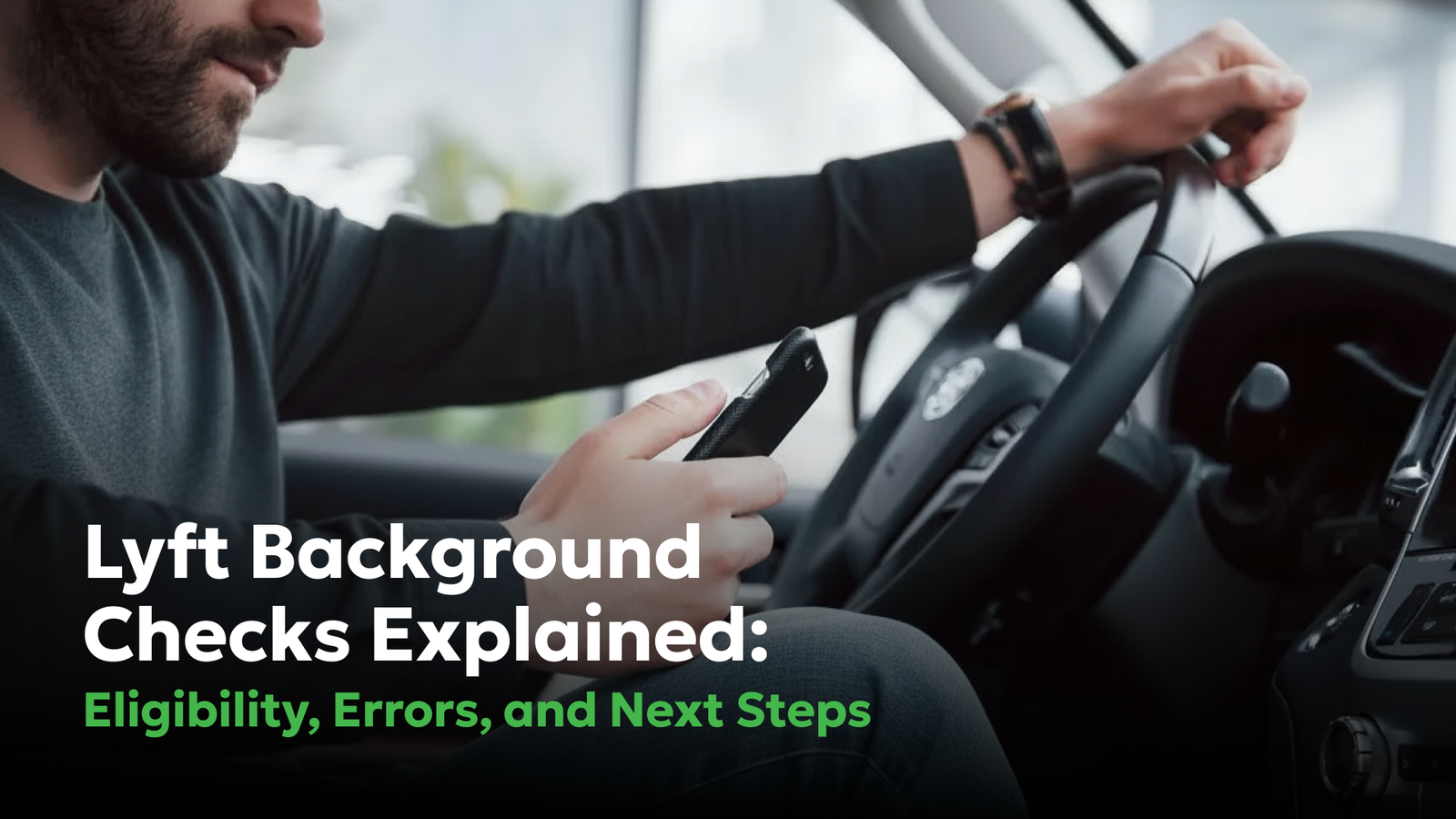
How Lyft’s Screening System Actually Works
Most drivers begin their Lyft journey the same way: upload a license, verify a few details, and wait for the background check. What Lyft doesn’t show you is the machinery behind that wait - a nationwide screening network pulling data from criminal databases, DMV files, sex offender registries, identity systems, and county courts.
This system is built for speed, not accuracy. Federal justice reporting has repeatedly documented widespread gaps, delays, and inconsistencies in national crime databases, and most private screening companies pull directly from these feeds without independently verifying records at the courthouse level.
With millions of drivers screened each year, the system leans heavily on automated matching. A similar name, a shared birth year, or an outdated record can be enough to trigger a wrong flag. For drivers, the result is simple: an app notification that instantly changes their earning potential. Sometimes a disqualification is simply the result of a background check delay or system error that can be corrected through a formal dispute.
A flawed automated background check can make a Lyft disqualification feel like a final verdict. Find out exactly how the screening process works, the valid reasons for rejection, and the steps to challenge a report that contains errors.
You’ll Learn in This Article:
- How Lyft’s Screening System Actually Works
- What Can Disqualify You From Driving (Explained Clearly)
- The Hidden Problem: Records That Don’t Belong to You
- How Long Lyft Background Checks Really Take (Latest Data)
- Step-by-Step: Fixing a Wrong Lyft Disqualification
- What Legal Remedies You May Be Entitled To
What Else Can Disqualify You From Driving (Explained Clearly)
Lyft’s disqualifiers generally fall into several categories. The exact rules vary by city and state, but the overall framework is consistent.
Driving-Related Issues
Multiple recent violations, serious traffic offenses, DUIs within the past seven years, or a suspended or invalid license can stop an application or lead to deactivation.
Criminal History
Lyft also reviews criminal history. Certain felony convictions, violent offenses, and sexual offenses may be disqualifying depending on jurisdiction and recency.
Under federal law:
- Non-convictions (such as dismissed charges or arrests that did not lead to conviction) generally should not be reported after seven years.
- Convictions may be reported without a time limit, unless they have been sealed or expunged.
Records that have been sealed or expunged should not appear at all.
Identity and Verification Issues
Separate from criminal history are identity-related problems. Mismatched names, inconsistent personal data, or unresolved verification flags can cause a file to be marked as “unable to proceed,” even when no disqualifying record exists.
Vehicle-Related Requirements
Vehicle eligibility matters as well. An unsafe, outdated, or non-compliant vehicle can pause onboarding even if your background and driving record are clean.
Consumer advocates and legal analyses have consistently found that a significant number of rideshare screening issues stem from reporting errors, such as identity mix-ups, outdated information, or records that should not have been reported at all. In many cases, disqualification isn’t about conduct - it’s about accuracy.
The Hidden Problem: Records That Don’t Belong to You
Not all disqualifications stem from your own history. Many are caused by background check errors, including records that belong to someone else or information that should no longer be reported.
When Lyft’s screening partner processes your information, it matches your data against massive federal, state, and private databases. If identifiers overlap, records are incomplete, or court updates were never transmitted, your report can pick up inaccurate data.
The FTC notes that consumer reporting agencies, including background check companies, must take reasonable steps to ensure the maximum possible accuracy of their reports, and real-world error types include mismatches of records to the wrong individual and other inaccuracies. In reality, errors still occur.
Common examples include:
- Mixed file errors, where records from two different individuals are merged (such as nearly identical identifiers or Social Security numbers differing by a single digit).
- Incorrect cross-state matches, attaching another person’s criminal record from a different state.
- Outdated or incomplete records, including expunged cases reappearing or dismissed charges showing due to missing dispositions
Lyft does not independently investigate these issues. It relies on the report as provided, leaving drivers to deal with the fallout of errors they did not create.
How Long Lyft Background Checks Really Take (Latest Data)
Lyft publicly states that most background checks take f. In reality, national hiring data paints a different picture.
In 2024:
- 22% of rideshare applicants waited longer than two weeks,
- 11% waited over a month, often because multiple states needed verification,
- and certain county courts, especially those still using paper records, added 20-30 additional days to the timeline.
Long delays aren’t always a sign of a problem, but they can be an early indication that your information matched someone else’s, or that the screening company is waiting on outdated or incomplete records. When an instant disqualification follows a delay, a deeper issue is almost always involved.
Step-by-Step: Fixing a Wrong Lyft Disqualification
If your Lyft background check comes back wrong, the next steps matter more than drivers realize.
- Start by requesting the exact report used to make the decision from Checkr via the Checkr Candidate Portal. You have the right to see it, and it’s the only way to know what went wrong.
- Once you have it, read carefully. Look for charges filed in states you never lived in, dates that don’t make sense, duplicate entries, old cases that should be sealed, or records with different middle initials. Many inaccuracies are subtle but deeply harmful.
- Once the error is identified, dispute it in writing rather than through an online form. Written disputes trigger a reasonable reinvestigation under the FCRA; electronic disputes often result in automated responses rather than a meaningful review.
- Save every Lyft email, timestamp, denial notice, and app message. These records become critical if the screening company fails to investigate properly or if Lyft acted on information that should never have appeared.
- And once you’ve taken those first steps, legal help can shift the power back.
Consumer Attorneys reviews your report and assists you in identifying the source of the error, whether with the screening company or the data furnisher. When appropriate, we submit formal disputes to trigger a proper reinvestigation and correction.
If the violation caused lost income, time, or opportunity, or if the error was not corrected as required, we pursue accountability in line with the FCRA. Even when a report is fixed later, the harm may already have occurred, and the law allows recovery for that loss. While you can try to resolve this on your own, pursuing a claim to sue for a Lyft background check error is often more effective with experienced legal support. If the error persists, it may be time to speak with an FCRA attorney about your options. A professional review can help determine whether compensation may be available.
What Legal Remedies You May Be Entitled To
A wrongful Lyft disqualification is not “just a mistake.” It’s a violation with real consequences, and the law gives you tools to respond.
Under the FCRA, you may be entitled to:
- correction of inaccurate records,
- statutory damages up to $1,000 per violation,
- compensation for lost earnings,
- emotional-distress damages,
- punitive damages in serious cases,
- and full coverage of attorney’s fees.
You pay nothing out of pocket. The law requires the companies responsible for the error to cover the costs.
If you’ve been pushed off the road by a mistake, the comeback starts with knowing your rights and enforcing them. Your rights. Your record. Your road back.
Frequently Asked Questions
Lyft must provide an adverse action notice stating that a background check affected your eligibility. However, the notice does not always explain whether the information is accurate. Errors like outdated records, mismatches, or data belonging to another person can still appear. Reviewing the full report is the first step to identifying the issue.
Lyft will notify you by email or in the app. Some notices cite policy violations, while others reference background check results. If the message mentions a background check, or includes information you don’t recognize or believe is inaccurate, reviewing your background report is the next step.
Yes. But your chances are far stronger if the underlying error is corrected first and properly addressed. Without a formal challenge, the same mistake can reappear in future screenings. Once errors are corrected or legally challenged, many drivers are able to return to the platform.


Daniel Cohen is the Founder of Consumer Attorneys. Daniel manages the firm’s branding, marketing, client intake and business development efforts. Since 2017, he is a member of the National Association of Consumer Advocates and the National Consumer Law Center. Mr. Cohen is a nationally-recognized practitioner of consumer protection law. He has a we... Read more

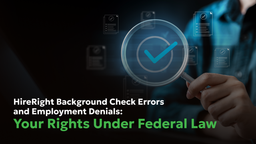


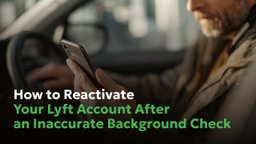
Related Articles
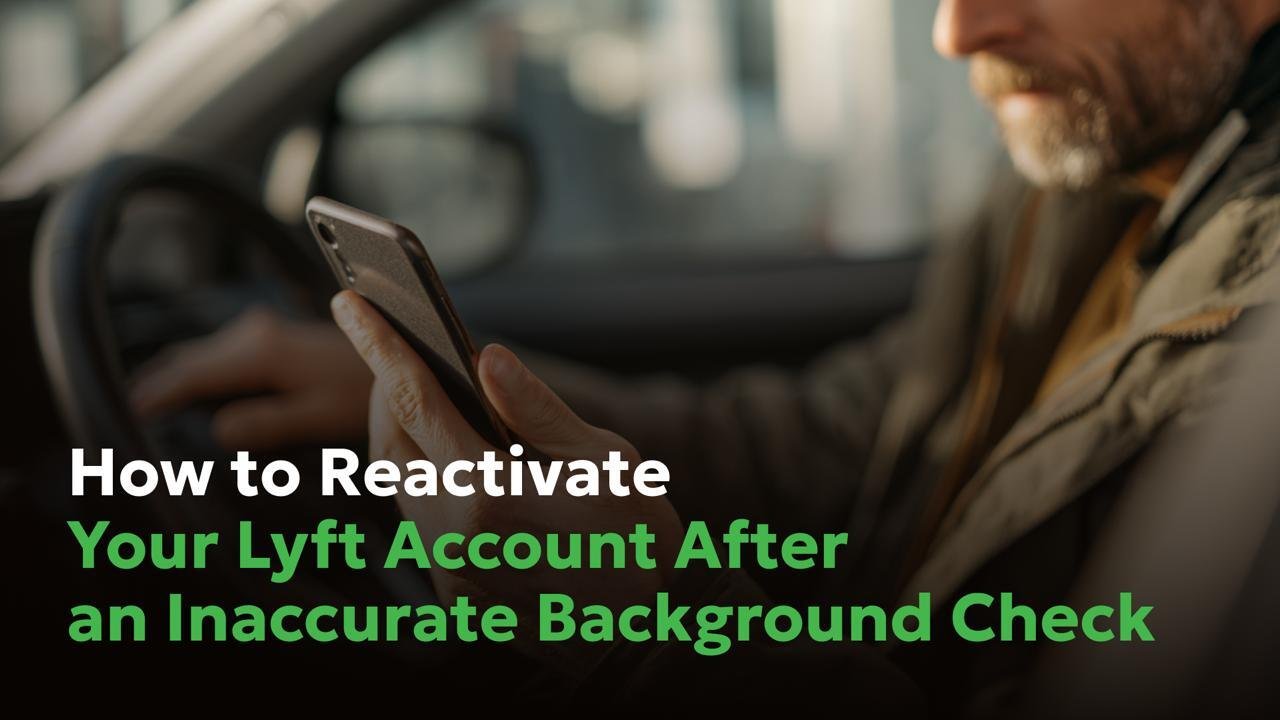
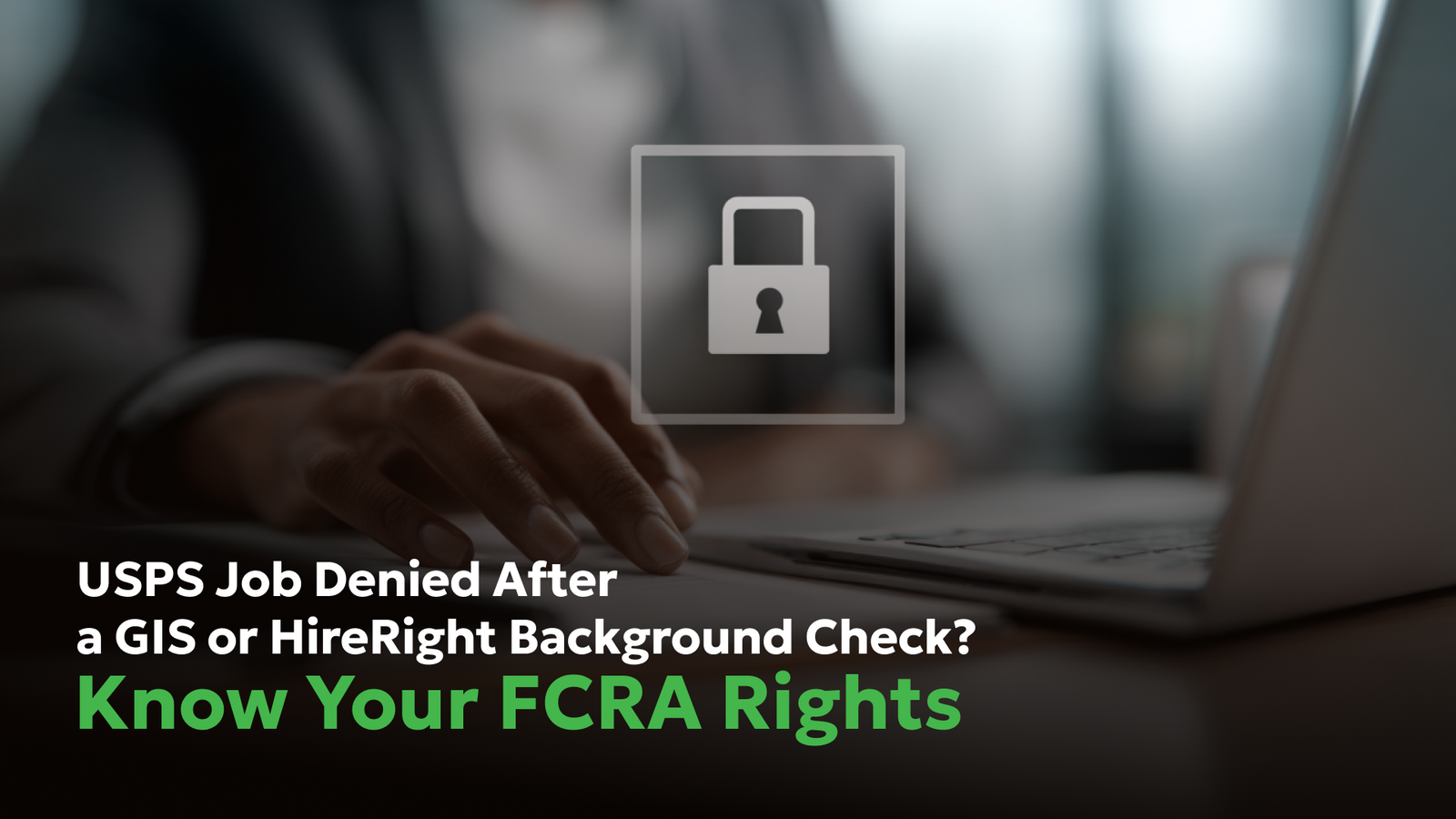
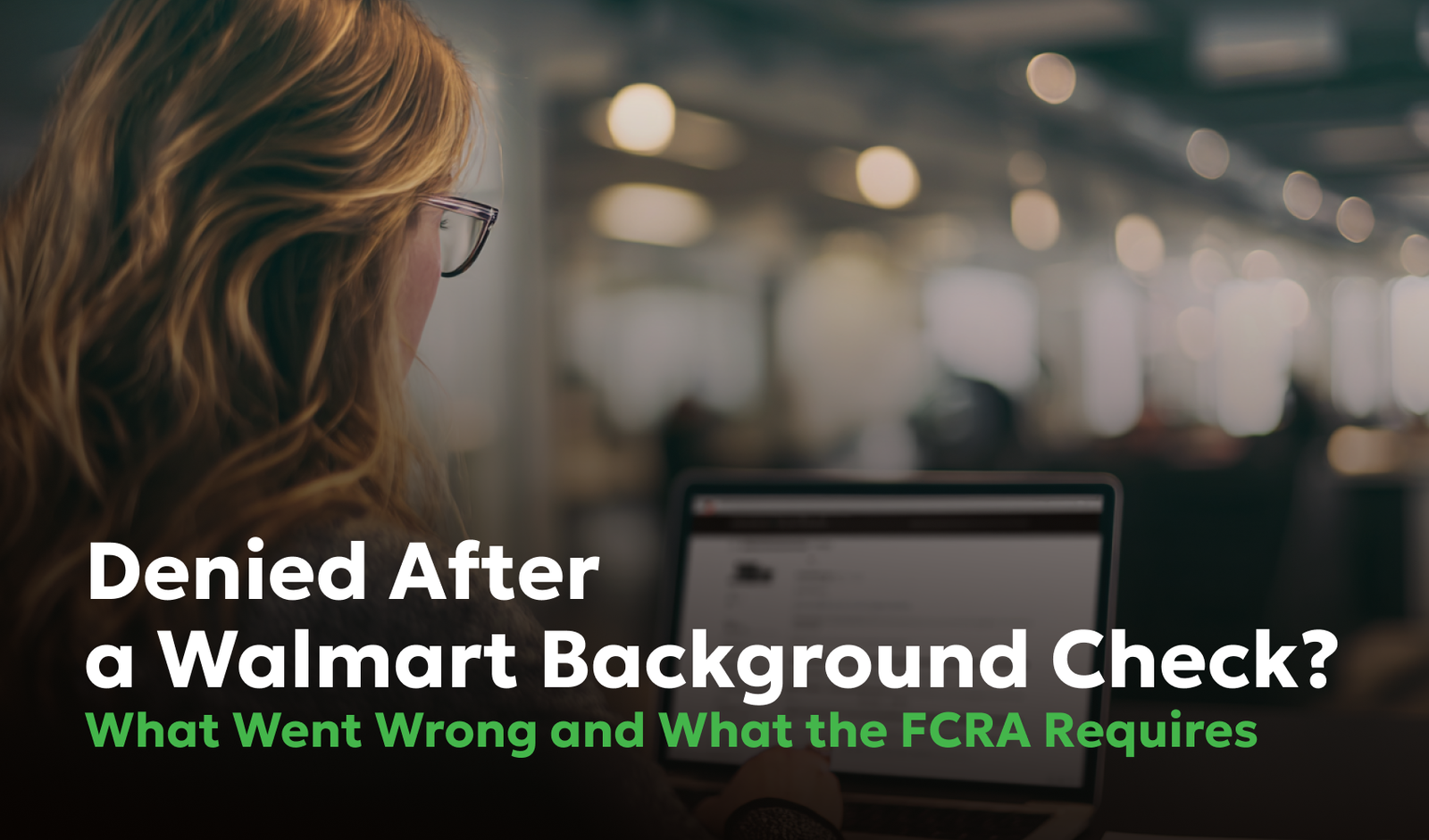

R
ONGS™You pay nothing. The law makes them pay.


